ERP or Enterprise Resource Planning System is a crucial aspect in varius industries like manufacturing, distribution, supply chain, finance & accounting, risk management, and more. Taking count of Organization Size, Target audience, Asset management, and many essential features and managing ease it offers many businesses believe that an ERP system is a must for efficient management and operations. Now, The question has to be askDoeshat your startup also should have an ERP System? Or Does it?
There is No ERP System available for Free or At a Low cost; even though they require specialized people for setup and operation; So how can you find the right solution when it comes to an ERP System for Your Startup? In this article, we will be talking about ERP Systems for Startups and found 15 ERP Systems best suitable for Startups with their specific specifications.
What Exactly is an ERP System?
Enterprise Resource Planning (ERP) systems are comprehensive software solutions that integrate and streamline core business processes across an organization. These powerful tools act as the central nervous system of a company, connecting various departments and functions such as finance, human resources, supply chain management, manufacturing, and customer relationship management.
At its core, an ERP system utilizes a unified database to store and manage all of a company’s data. This centralized approach ensures consistency, eliminates data silos, and provides real-time updates across the entire organization. By consolidating information, ERP systems offer a single source of truth, enabling more accurate reporting and decision-making.
One of the key benefits of ERP systems is their ability to automate routine tasks and workflows. This automation reduces manual work, minimizes errors, and significantly improves operational efficiency. From generating invoices to tracking inventory levels, ERP systems can handle a wide array of business processes with minimal human intervention.
Modern ERP solutions typically consist of different modules, each catering to specific business functions. These modules work seamlessly together, allowing for smooth data flow and process integration. For example, a sales order in the CRM module can automatically update inventory levels in the supply chain module and create a new entry in the financial module.
ERP systems also provide powerful analytics and reporting capabilities. By leveraging the vast amount of data collected across the organization, these tools offer valuable insights into business performance, trends, and potential areas for improvement. This data-driven approach enables companies to make more informed decisions and respond quickly to market changes.
What About Start-Up and Growing Business?
For startups, implementing an ERP system early on can be particularly advantageous. It provides a scalable foundation for managing business operations, allowing the company to streamline processes and facilitate growth from the outset. As the startup expands, the ERP system can adapt to accommodate increased complexity and volume, supporting the business through various stages of development.
ERP Systems for Start-Up and Growing Businesses
After the research, our team found that there are more than 50 ERP Systems available in the market and each has its own specialities and some cons which makes it difficult to choose which one to go with. So, here we are with our ultimate list of Top 15 ERP Systems for Your Business with Specific needs.
NetSuite ERP

NetSuite is a cloud-based ERP system owned by Oracle, designed to help businesses manage core processes in a single, integrated platform. NetSuite can be an excellent choice for startups with ambitious growth plans. Its scalability allows the system to grow with the business, eliminating the need for disruptive system changes later. The comprehensive nature of NetSuite means startups can manage multiple aspects of their business in one place, which is crucial for maintaining efficiency as the company expands.
However, very early-stage startups might find NetSuite’s cost and complexity overwhelming. It’s more suitable for startups that have secured significant funding or are experiencing rapid growth. The system’s ability to provide real-time insights across all business areas can be particularly valuable for fast-growing companies that need to make quick, data-driven decisions.
Overall, NetSuite offers a robust solution for startups that are prepared to invest in a comprehensive ERP system to support their long-term growth strategies.
Pros:
- Cloud-based: Accessible from anywhere, reducing IT infrastructure costs.
- Scalability: Easily adapts to growing business needs without major overhauls.
- Comprehensive suite: Includes financials, CRM, inventory, and e-commerce modules.
- Real-time data: Provides up-to-date information across all business areas.
- Customization: Offers flexibility to tailor the system to specific business needs.
- Mobile access: Allows management on-the-go through mobile apps.
- Regular updates: Cloud-based nature ensures automatic software updates.
- Industry-specific solutions: Offers pre-configured setups for various industries.
Cons:
- Cost: Can be expensive for very small startups, especially with add-ons.
- Complexity: May have a steep learning curve for some users.
- Customization limits: Some advanced customizations may require developer expertise.
- Internet-dependent: Requires stable internet connection for access.
- Data migration: Initial setup and data transfer can be challenging.
SAP S/4HANA Cloud
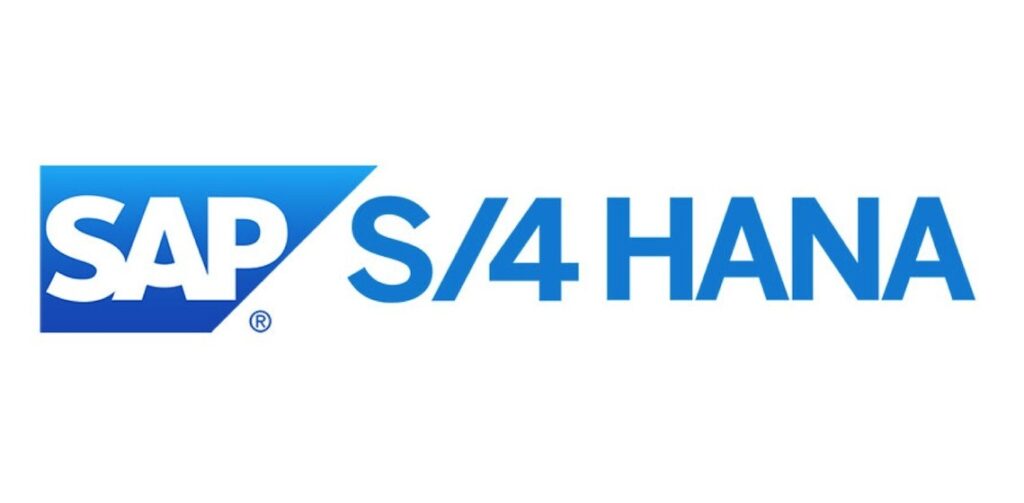
SAP S/4HANA Cloud is a cloud-based ERP solution designed for mid-size to large enterprises, but also suitable for fast-growing startups. SAP S/4HANA Cloud offers a powerful, future-proof solution for startups anticipating rapid growth. Its scalability and advanced features provide a strong foundation for long-term expansion. However, the cost and complexity may be challenging for very early-stage startups. It’s best suited for well-funded startups or those in complex industries that can benefit from its advanced capabilities and are prepared to invest in a comprehensive ERP system.
The solution’s ability to provide real-time insights and its AI-driven processes can give growing businesses a competitive edge, especially in data-intensive industries. However, startups should carefully consider their resources and immediate needs before committing to this robust but potentially complex system.
Pros:
- Advanced analytics: Built-in AI and machine learning capabilities
- Scalability: Grows with your business needs
- Industry-specific solutions: Pre-configured for various sectors
- Real-time insights: In-memory database for quick data processing
- Integration: Seamless connection with other SAP products
- Regular updates: Automatic quarterly feature releases
Cons:
- Cost: Can be expensive for early-stage startups
- Complexity: May require specialized skills to fully utilize
- Implementation time: Can be lengthy compared to some alternatives
- Customization: Some limitations in the cloud version
Microsoft Dynamics 365
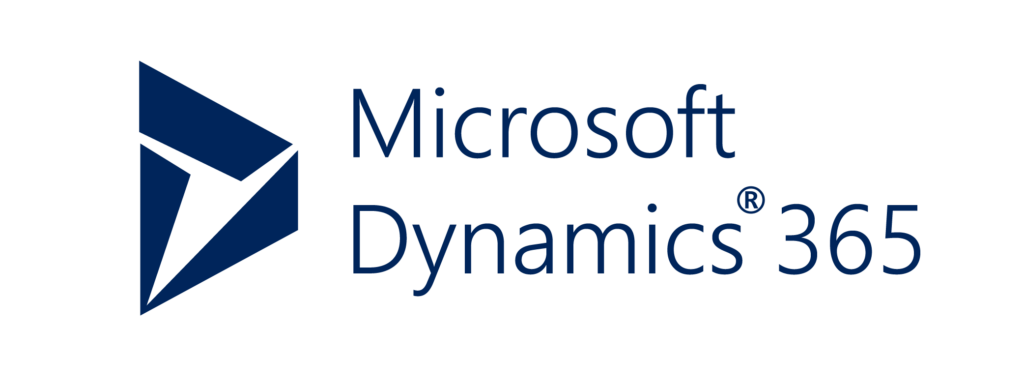
Microsoft Dynamics 365 is a cloud-based suite of business applications that combines ERP and CRM functionalities. Microsoft Dynamics 365 offers a flexible solution that can be particularly attractive for startups already using Microsoft products. Its modular approach allows businesses to start small and add functionality as they grow, making it a scalable option for evolving startups.
The familiar Microsoft interface can reduce training time, while the integration with tools like Office 365 can improve productivity. The AI capabilities and Power Platform integration provide room for advanced analytics and custom app development as the business matures.
However, startups should be cautious about costs as they add modules. It’s best suited for startups with some initial funding and those anticipating rapid growth who can benefit from a system that scales with them. The solution’s flexibility makes it a good fit for a wide range of industries, from tech startups to service-based businesses.
Pros:
- Modular approach: Choose and pay for only the apps you need
- Integration: Seamless connection with Microsoft 365 and Power Platform
- Familiar interface: Similar to other Microsoft products, reducing learning curve
- AI capabilities: Built-in intelligence for predictive insights
- Scalability: Easily add modules as your business grows
- Mobile-friendly: Access on various devices
- Customization: Power Platform allows for tailored solutions
Cons:
- Pricing structure: Can become expensive as you add modules
- Complexity: Full suite may be overwhelming for very small startups
- Implementation: May require partner assistance for optimal setup
- Updates: Frequent updates can be disruptive if not managed well
Odoo ERP

Odoo is an open-source, modular ERP system that offers both on-premise and cloud-based solutions for businesses of all sizes. Odoo is an excellent choice for startups due to its flexibility and affordability. The modular approach allows businesses to start small and expand functionality as they grow. Its open-source nature provides cost advantages and customization options. However, startups should consider potential long-term costs if extensive customization or the enterprise version becomes necessary.
Pros:
- Modular structure: Start with basic apps and add more as needed
- Affordable: Competitive pricing, especially for the open-source version
- User-friendly: Intuitive interface with modern design
- Customizable: Extensive options for tailoring to specific needs
- Large app ecosystem: Wide range of official and community apps
- Regular updates: Frequent improvements and new features
- Scalability: Suitable for startups through to large enterprises
Cons:
- Community vs. Enterprise versions: Some features limited to paid version
- Complexity in customization: Advanced changes may require developer expertise
- Integration challenges: Some third-party integrations can be complex
Sage Intacct
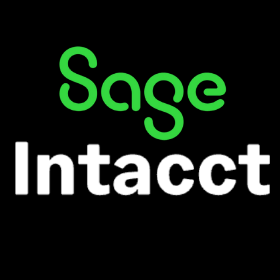
Sage Intacct is a cloud-based financial management and accounting software well-suited for startups and growing businesses. Sage Intacct is particularly beneficial for startups with complex financial needs or those in finance-heavy industries. Its robust financial management capabilities provide a solid foundation for growth, while its scalability ensures it can adapt to evolving business requirements. However, very early-stage startups might find it more comprehensive than necessary, and its cost should be carefully considered against immediate needs and available resources.
Pros:
- Strong financial focus: Excellent for complex financial operations
- Scalability: Grows with your business needs
- Multi-entity management: Ideal for startups planning expansion
- Customizable reporting: Offers in-depth financial insights
- Integration capabilities: Works well with many third-party applications
- Automation: Streamlines financial processes
Cons:
- Limited non-financial features: Focused primarily on accounting and finance
- Learning curve: May require some training to fully utilize
- Cost: Can be pricier than entry-level accounting software
Acumatica

Acumatica is a cloud-based ERP system designed for small to mid-sized businesses, including startups and growing companies. Acumatica is well-suited for startups planning rapid growth. Its flexible pricing model allows businesses to start small and scale without worrying about per-user costs. The system’s adaptability and industry-specific editions make it a good fit for various sectors. However, startups should consider implementation costs and potential need for partner support when evaluating this option.
Pros:
- Flexible pricing: Unique pricing model based on resources used, not user count
- Industry-specific editions: Tailored solutions for various sectors
- Customization: Highly adaptable to specific business needs
- Mobile-friendly: Full functionality on mobile devices
- Open API: Easy integration with other software
- User-friendly interface: Intuitive design reduces learning curve
- Scalability: Grows with your business without penalizing for adding users
Cons:
- Implementation complexity: May require partner assistance for setup
- Limited brand recognition: Less known compared to larger ERP providers
- Customization costs: Advanced customizations can be expensive
TallyPrime

TallyPrime is an accounting and business management software popular among small to medium-sized businesses, particularly in India and neighboring countries. TallyPrime is an excellent choice for startups looking for a straightforward, cost-effective accounting solution, especially in the Indian market. Its ease of use and quick implementation make it ideal for businesses new to digital accounting. However, rapidly growing startups may outgrow its capabilities and need to transition to more comprehensive ERP systems as they scale.
Pros:
- User-friendly: Simple interface, easy to learn and use
- Affordable: Cost-effective solution for startups
- Localization: Well-adapted for Indian tax systems (GST, TDS)
- Offline capability: Works without constant internet connection
- Quick setup: Can be implemented rapidly
- Comprehensive accounting: Covers most financial management needs
- Regular updates: Keeps up with changing tax regulations
Cons:
- Limited advanced features: May lack some sophisticated ERP functionalities
- Scalability concerns: May struggle with very large data volumes
- Integration limitations: Fewer third-party integrations compared to cloud-based ERPs
- Primarily desktop-based: Cloud features are limited
XoroERP
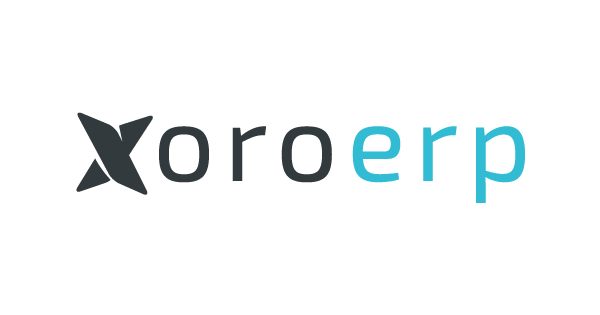
XoroERP is a cloud-based ERP solution designed for small to medium-sized businesses, including startups and growing companies. XoroERP offers a good balance of functionality and affordability for startups. Its modular approach allows businesses to start with essential features and add more as they grow. The industry-specific solutions can be particularly beneficial for startups in manufacturing or distribution. However, startups should carefully evaluate the long-term scalability and support quality before committing to this lesser-known ERP solution.
Pros:
- Modular approach: Allows businesses to choose relevant modules
- Industry-specific solutions: Tailored for manufacturing, distribution, and services
- Cost-effective: Competitive pricing for startups
- User-friendly interface: Intuitive design reduces learning curve
- Mobile accessibility: Access from various devices
- Customization options: Can be adapted to specific business needs
- Scalability: Grows with the business
Cons:
- Limited brand recognition: Less known compared to major ERP providers
- Integration limitations: May have fewer third-party integrations
- Support quality: May vary depending on location and partner network
Epicor Eclipse

Epicor Eclipse is an ERP solution primarily designed for wholesale distributors, but it can be adapted for other industries as well. Epicor Eclipse is best suited for startups in the distribution sector or those with complex inventory management needs. Its comprehensive features can provide a solid foundation for growth. However, the cost and industry-specific focus may make it less suitable for startups in other sectors or those with limited budgets. It’s ideal for well-funded distribution startups planning for rapid expansion.
Pros:
- Industry-specific: Tailored for distribution businesses
- Comprehensive functionality: Covers most aspects of distribution operations
- Inventory management: Strong features for stock control and forecasting
- Customer service tools: Enhances customer relationship management
- Scalability: Can accommodate business growth
- Reporting capabilities: Offers detailed analytics and insights
- Mobile access: Allows on-the-go management
Cons:
- Complexity: May have a steeper learning curve for new users
- Cost: Can be expensive for early-stage startups
- Customization: May require technical expertise for advanced modifications
- Limited flexibility: Less adaptable for non-distribution businesses
SAP Business One
SAP Business One is an ERP solution designed specifically for small to medium-sized businesses, including startups and growing companies. SAP Business One is well-suited for startups with substantial funding or those anticipating rapid growth. It provides a solid, scalable foundation for long-term business expansion. However, very early-stage startups might find it overly complex and costly. It’s ideal for businesses that want a comprehensive, future-proof solution from the start.
Pros:
- Comprehensive functionality: Covers most business processes
- Scalability: Grows with the business from startup to medium-sized enterprise
- Industry-specific solutions: Pre-configured for various sectors
- Strong financial management: Robust accounting and reporting features
- Integration capabilities: Works well with other SAP and third-party products
- Mobile app: Allows management on-the-go
- Customization options: Can be tailored to specific business needs
Cons:
- Cost: Can be expensive for very early-stage startups
- Complexity: May have a steeper learning curve than some alternatives
- Implementation time: Can take longer to set up compared to simpler solutions
- Resource intensive: May require dedicated IT support
Conclusion
Selecting the right ERP system is crucial for startups and growing businesses. Each solution offers unique strengths and potential drawbacks, catering to different needs and growth stages. Cloud-based systems like NetSuite and Microsoft Dynamics 365 offer scalability and accessibility, while industry-specific solutions like Epicor Eclipse provide targeted functionality. Open-source options like Odoo offer flexibility and cost-effectiveness, particularly appealing to budget-conscious startups.
When choosing an ERP system, consider factors such as scalability, cost, industry fit, implementation complexity, and integration capabilities. Evaluate your current needs and future growth plans to ensure the chosen system can adapt as your business evolves. Remember that the most expensive or feature-rich option isn’t always the best fit.
Ultimately, the ideal ERP system should streamline operations, provide valuable insights, and support your business growth without overwhelming your resources. Take time to assess multiple options, possibly starting with modular or lighter solutions that can scale with your business.



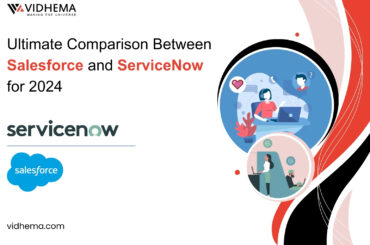
1 Comment
Pingback: Salesforce and ServiceNow - What to Choose in 2024